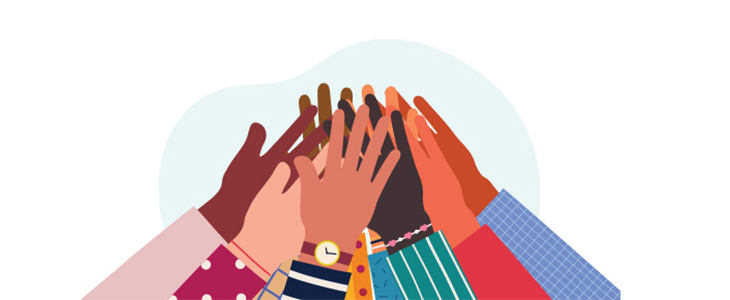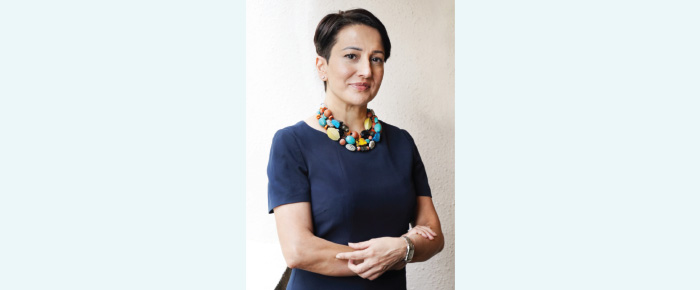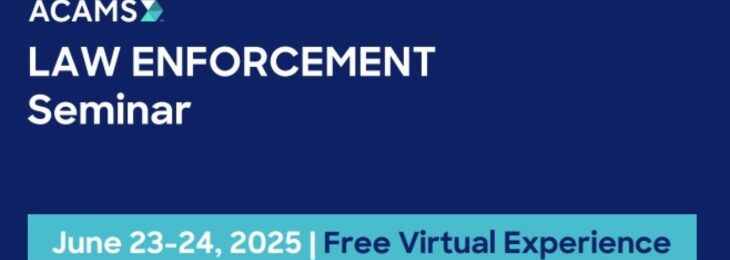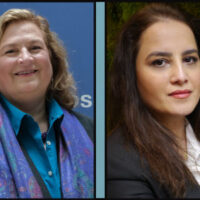
It may be old saw to say it, but it is true: diversity is a strength in anti-financial crime (AFC) compliance. For ACAMS, it is also a priority, thanks to the work headed by Lashvinder Kaur, vice president of global strategic communications, who in 2020 pushed to make improving diversity, equity and inclusion (DEI) a goal for the association and its over 90,000 members across the globe.

In an interview with ACAMS Today, Kaur spoke about the organization’s ongoing efforts to strengthen DEI, both within the company and throughout the global AFC sector. What follows is an edited transcript of that conversation.
ACAMS Today (AT): DEI have long been issues throughout the corporate world. What prompted you to look at DEI as a priority for ACAMS?
Lash Kaur (LK): As a woman of color from Asia who has worked for multinational companies, I have always been aware of the advantage that diversity brings, but the Black Lives Matter protests in the U.S. and abroad really opened opportunities to do more on DEI throughout the corporate world. They were a game-changer. It was important for me not only that we did something but that we did something meaningful and lasting. I did not want DEI to be window-dressing for us, and I did not want it to fade away once the protests stopped. Fortunately, I found out that I had the full backing of our president, Scott Liles and the rest of the ACAMS executive team. Everyone agreed that, as the largest global membership organization for AFC professionals, ACAMS had a responsibility to act. Because if we were not going to do it, who would? We have the good fortune of effectuating change within the AFC sector, but with that comes a responsibility to step forward when action is needed.
AT: Once everyone was on board, what did you prioritize first?
LK: DEI can be tricky because it is easy to support on paper but complicated in the real world. We decided that our first steps would have to be internal. We wanted to give ACAMS colleagues a chance to share and discuss their experiences so that everyone understood why and how diversity was a priority. So, we began with an internal survey and then hosted a series of townhalls to spotlight the prevalence of unconscious biases and microaggressions that many of our colleagues have encountered in their personal and professional lives. That is the tricky part: explaining to people how they may be unconsciously expressing biases based on stereotypes of race, gender, sexuality or religion, and how this can be hurtful, even when it is not done maliciously. DEI is not about pointing fingers and telling people that they are biased. It is about raising awareness of the fact that, one way or another, many of our coworkers find themselves subjected to unconscious biases all the time, often daily. The speakers at our townhalls led by one of our colleagues, Shontae White, did a brilliant job showing how offhanded remarks can have a lasting impact on their colleagues. That set the stage for us to take DEI to the broader AFC community.
AT: How did you promote DEI externally?
LK: One of our first and most important steps was partnering with the National Association of Black Compliance & Risk Management Professionals (NABCRMP). Fundamentally, that partnership is about giving greater visibility to talented compliance professionals of color, whether through ACAMS conferences, webinars or other platforms. It was important that we have a metric to reflect that this was not just a rhetorical exercise and expanding the opportunities for people to speak on conference panels and training events has been a great way to measure our progress. Our global events team, led by Sandy Espinosa, has been a great driver of ensuring this change and we can look back now and see that with each ACAMS event across the world, we have increased the diversity of our subject-matter experts compared to the previous year.
We also launched ACAMS Global Voices, a series hosted by Howard Fields, a senior compliance professional at Mastercard and ACAMS advisory board member. Each episode focuses on the experiences of an AFC professional with a diverse background, so viewers get a chance to learn how such experiences can strengthen compliance efforts. The web series complemented articles by ACAMS President Scott Liles on the importance of DEI, both within ACAMS and throughout the compliance sector.
Then, we announced a scholarship for racial and ethnic minority applicants in the fintech sector. Our thirty winners are now pursuing their Certified AML FinTech Compliance Associate (CAFCA) certification and will have the opportunity to take part in additional training later this year. We separately created a video addressing gender-pronoun awareness and committed to participating in the 10,000 Black Interns initiative in the U.K. But truthfully, that is only the beginning. In 2022, we will be moving forward with our Women in AFC Mentorship program and expanding other DEI opportunities within the AFC community.
AT: Speaking of the AFC community, how does DEI help compliance programs specifically?
LK: Everyone agrees that to fight financial crime effectively, you must be vigilant. To be truly vigilant, you need a wide perspective. That is what DEI brings: perspective—different backgrounds, experiences and points of view. Early on, ACAMS reached out to compliance executives to discuss DEI within their institutions, and they all made it clear that there is strength in diversity, including on a professional level. Having a diverse staff with a broad spectrum of experiences can clarify client behaviors, including transactions. Someone with a different cultural background might flag something that would have otherwise been missed or explain an activity that might otherwise have been flagged as suspicious, for example. Any compliance program requires these sorts of debates and discussions if it is going to be effective, and that is what DEI can deliver in a real and measurable way. It is important to remember that diversity is not simply about race, gender, sexuality or religion. Everyone brings a unique cultural experience or viewpoint to the table, and with the right training, that translates into stronger controls and stronger compliance.
That is the big picture we hope people take away: DEI is a moral choice, but it is also a professional advantage. It can help improve employee satisfaction and mitigate attrition, and at the same time, it can make your compliance team more effective at doing their jobs. It is a recognition that compliance—like the rest of the business world—is now effectively cross-border and cross-cultural for everyone. We all live and work in the same world, so we need to learn to see things through each other’s eyes if we want to see clearly. It is a goal we should all strive for.
Interviewed by: ACAMS editorial, ACAMS, editor@acams.org










